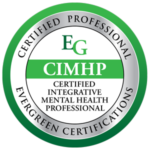Mind. Body. Spirit.
Inflammation Affects Physical and Mental Health – What You Need to Know!
Blog By: Mind, Mouth and Movement: Connecting the Missing Links
By Nancy Lum, RDN and Dawn O’Meally LCSW-C, P.A. 
Disclaimer: The information in this article is not intended to be a substitute for professional medical advice. Please consult with your medical team.
Inflammation is not all negative. Your body has a built-in inflammatory process when, for example, you accidentally cut your finger while cooking or catch a virus. The white blood cell army goes to the injured tissue and surrounds it for healing and to protect the injured area. In this case inflammation is an acute response and is positive for the body. The chronic inflammatory response will cause the white blood cells to continue coming, and the body will view this as an ongoing attack. This high-level inflammation leads the body’s immune system to attack healthy surrounding tissues and organs which can then lead to multiple diseases over time. Common diseases that chronic inflammation may lead to include cancer, autoimmune diagnoses (such as Fibromyalgia, Lupus, Crohn’s, and Ulcerative Colitis), Diabetes, Obesity, Heart Disease, and Arthritis. However, disease can also cause chronic inflammation in the body, and chronic inflammation can lead to disease. Common symptoms of chronic inflammation are fatigue, depression, stomach pain, joint pain, overall body aches/pain, and reduced mobility.

Our food intake is a major factor in chronic inflammation. We live in a processed fast-food society. We want instant gratification in everything these days including our food. These foods that we eat daily in the Standard American Diet (SAD) increase chronic inflammation and causes weight gain which also feeds the inflammatory monster. It’s a vicious circle!
The primary foods leading to increased inflammation and disease are:
- Refined simple carbohydrates such as pancakes, white breads and pasta
- Sugar and sweets in general
- French fries and deep fat fried foods
- Sodas, and sugar beverages
- Processed meats and beef
- Trans fats such as shortening, margarine, and lard
There are also whole foods that can increase inflammation. If you experience some of these medical inflammatory issues you may want to try an anti-inflammatory diet to help turn down inflammation. Common foods that may increase inflammation are night shade vegetables such as peppers, tomatoes, eggplant, and potatoes to name a few. Food allergies, gluten and dairy intolerances have also shown to increase inflammation in the body. The process of removing these foods to determine sensitivities and adding in whole foods and spices include:
- Whole grains: (non-enriched) Quinoa, whole grain breads, whole oats, whole grain pastas, polenta, red/black rice, bulgur, corn grits, millet
- Omega 3 fats: Cold pressed olive oil, avocado/ avocado oil, mackerel, salmon, sardines, cod liver oil, chia seeds, flaxseed, walnuts
- Lean proteins: Chicken, turkey, pork, fish, seafood, beans, nuts, nut butters
- Whole vegetables: Dark green leafy vegetables, broccoli, carrots, green beans, asparagus, brussel sprouts, cauliflower, beets, parsnips, green peas, red cabbage, sweet potatoes, radishes
- Spices: Turmeric, cayenne, ginger, cinnamon, cloves, sage, rosemary
 Adding these whole foods to your diet will turn down inflammation and can increase energy, turn down pain, and reduce disease symptoms. Increasing movement throughout the day and having a consistent exercise routine that increases your heart rate also lowers systemic inflammation and disease. The bottom line is we need move our bodies more and eat better foods to boost the immune system and reduce inflammation to feel better and have better health outcomes.
Adding these whole foods to your diet will turn down inflammation and can increase energy, turn down pain, and reduce disease symptoms. Increasing movement throughout the day and having a consistent exercise routine that increases your heart rate also lowers systemic inflammation and disease. The bottom line is we need move our bodies more and eat better foods to boost the immune system and reduce inflammation to feel better and have better health outcomes.
Another excellent reason to know about inflammation is because it impacts your mood. Inflammation matters! In fact, inflammation and depression fuel one another. The scientific connection between inflammation and depression has actually become quite robust over the years. They are like the twin dragons; inflammation can fuel depression or exacerbate depressive symptoms, and depression can increase brain inflammation. It’s like your brain is on fire from an inflammation perspective. We tend to think about inflammation as redness, pain, stiffness due to chronic illnesses, but we don’t “see it” or “feel it” in our brains like we do in other parts of our bodies. There is definitely a minds and body dance going on!
So, what causes inflammation to develop in our brains? Reaching this topic further revealed that meta-analyses have shown that people with medical illnesses such as diabetes, cancer, heart disease, rheumatoid arthritis, multiple scoliosis, and autoimmune diseases have a higher prevalence of depression compared to those that do not have these health conditions. But that’s not the whole story. Research is also showing that other variables such as smoking, alcohol consumption, socioeconomic stressors, and adverse childhood experiences can fuel the inflammatory response in the brain.
Why does this happen? It is well known that depression, stress, and immunity are linked. From a psychological perspective, the immune system is activated during psychological emergencies or trauma, for example, and proteins called “cytokines” are released and communicate with the brain. What is supposed to happen is that these pro-inflammatory cytokines do their job then disappear. The problem is that chronic stress causes the pro-inflammatory cytokines to stick around, and they get integrated in the body which can put people at risk of developing depression or other illnesses. According to Dr. Michael Irwin, professor of psychiatry and biobehavioral sciences at UCLA, “Most depression drugs aim to increase serotonin activity, just the opposite of what these proteins can do. Inflammatory cytokines act in the brain to reduce serotonin activity that is associated with depression.” In addition, chronic exposure to increased inflammation is believed to drive changes in neurotransmitters and brain circuit connections which leads to depressive symptoms. These changes may also interfere with, or undermine, the efficiency of antidepressant medications. This may help to explain why a sizable percentage of people do not obtain relief from antidepressant medications. Bottom line: Inflammation is the fuel for the fire of brain deterioration!
Multiple studies have demonstrated that people with depression show a significantly elevated level of inflammation in their blood as evidenced by C-Reactive Protein (CRP) levels. CRP is a protein that is made by the liver, and the level increases when there is inflammation in the body. A simple blood test can tell the story! Interestingly, a study was done involving the injection of chemicals into volunteers to create inflammation, and within just a few hours, these volunteers showed increased symptoms of depression. Another study found that high levels of inflammation influenced behaviors as well as mood. Impulsivity, the ability to delay gratification, increased irritability, and reactiveness were elevated. While not generalizable, these are not desirable outcomes and can obviously compound the problem!
Another factor to consider for brain health is cortisol. Cortisol is a steroid hormone produced by our two adrenal glands and endocrine glands which sit on top of our kidneys. Cortisol is our main stress hormone and is our built-in fight or flight mechanism. It increases sugars in the bloodstream and enhances the brain’s use of glucose released by the body to help us in the short run. Cortisol can be measured via a blood test, urine collection, or saliva test. Chronic stress leads to consistently high cortisol levels which disrupts the balance in our brain. Too much cortisol for too long a period fuels the inflammation and increases the risk for depression and anxiety.
So, what can we do to decrease inflammation in our bodies to FEEL better? This is not an exhaustive list but represents great options, tips, and starting points!
- Lose weight – especially the abdominal fat. Obesity causes chronic low grade systemic inflammation due to the increased pro-inflammatory cytokines secreted from adipose (fatty) tissues. High levels of abdominal fat are more associated with systemic inflammation than BMI. Remember the inflammation produced is the precursor to multiple diseases and will make its way to your brain.
- Know your numbers. Ask your physician or medical professional to order lab work that will look at CRP, Glucose, Cholesterol, A1-C, Cortisol, B-12, Vitamin D. If you don’t ask, these labs may be overlooked by your medical provider.
- Take charge of your diet and lifestyle choices as described earlier. Adopt the anti-inflammatory diet.
Tips: It is often hard to know where to begin in making diet and lifestyle changes. Consider hiring a certified personal trainer (CPT) to learn how to exercise safely and efficiently without injuring yourself and creating more inflammation and pain. Consult with a licensed registered dietitian (RD) as they are your best source for advice on a sound anti-inflammatory nutritional food plan and can advise you on supplementation as well. Medical doctors generally receive very little training in this area in medical school and refer their patients to dietitians.
Need accountability and additional support in making changes?
Think about hiring a health or lifestyle coach.
- The use of high-quality supplements, minerals, and herbals such as Omega 3’s, fish oil, magnesium, B-complex, Gaba, valerian, chamomile, kava, rhodiola, gotu kola, and common adaptogens including panax, ginseng, eleuthero, ashwagandha, licorice, nervines (such as hops, valerian, and passionflower), stimulants (such as coffee or green tea), anti-inflammatory/analgesics (such as buchu, turmeric — Mother Natures’ secret weapon that crosses the blood brain barrier), and ginger, St. John’s wort, and others. Be sure to consult with a trained professional to advise you which and how much to take.
Tips: Instead of drinking a cup of coffee, swap for a cup of green tea packed with polyphenol compounds which can help reduce free radical damage to stop further inflammation!
- Deal with your depression! Research has shown that antidepressant medications can reduce inflammation. The links between depression, inflammation, and disease suggest that effective depression treatments can have a far-reaching impact on mood, inflammation, and health. If you are suffering from depression, be aware of anything that might trigger your immune response, as your depressive symptoms may intensify.
Tips: Apart from antidepressant medications, non-conventional, evidenced-based interventions are options for the effective treatment of depression such as transcranial magnetic stimulation (TMS), Alpha-Stim, psychedelic therapy, ketamine therapy, MDMA and others. It is important to learn about the risks and benefits associated with any of these therapies.
- Get a good night’s sleep! Sleep is the foundation for good physical and mental health. Routinely not getting enough sleep (6 hours or less) triggers higher levels of inflammation biomarkers and increases the risk for metabolic issues that can lead to obesity, type 2 diabetes, heart disease, as well as dementia and Alzheimer’s. 7-8 hours of continuous sleep is even better! Practice good sleep hygiene strategies to promote good sleep.
Tips: Do you snore, wake up gasping for air, or are you overweight or obese? Get a sleep study done to make sure you don’t have Sleep Apnea which is treatable!
- Don’t ignore your aches and pains. Systemic inflammation is likely to blame! Have a conversation with your medical professional about it.
- Skin issues such as eczema, psoriasis, redness, flaking, and itchiness are often associated with silent inflammation. Get it checked out.
- Listen to your gut and address any digestive issues as they may be indicative of harmful inflammation within your digestive track. Consult with a professional to help you identify anti-inflammatory foods your gut may be responding to such as dairy and gluten. Your gut is your second brain and needs to be tended to. Prebiotics, Probiotics, and diet all create synergistically a microbiome balance.
- Experiencing memory issues? This is a no-brainer. Get checked out and find out what may be driving cognitive changes and what you can do about them. Memory issues are NOT normal.
- Red wine is a great source of resveratrol, a super antioxidant. If you don’t like red wine or can’t drink red wine, resveratrol is available as a supplement.
- Chill out and learn how to manage your stress. Find healthy ways to deal with the stress, for example, by meditating, practicing yoga, walking, journaling, art, music, spending time with friends and loved ones, connecting with your spirituality and more. Be intentional about practicing self-care, schedule it, and make it a priority in your life. Manage your stress or it will manage you!
- Seek professional psychological help to deal with current or unresolved issues, stressors, trauma, life cycle issues. Cognitive Behavioral Therapy (CBT), mindfulness, EMDR, DBT, and other psychological treatments are all evidenced based/research based and can transform your mental health and wellbeing. Studies have shown that these therapies can be just as effective as antidepressant medications.
- Additives, dyes, preservatives all have the potential to trigger or aggravate inflammation — particularly if you have a weak gut.
- There are some studies that suggest that NSAIDs, omega 3 fatty acids, statins, and antibiotics were the most effective at curbing major depressive symptoms compared with a placebo. And the effects were even greater when one or another of these agents was added to standard antidepressant treatment. Check out The Journal of Neurology Neurosurgery & Psychiatry online to learn more about these studies. Decreasing depressive symptoms decreases inflammation. Be sure to consult with your medical professional before making any changes to your medicines!
Inflammation is the precursor to most diseases, including mood and cognitive disorders. You can prevent or change the outcome by getting control as we have described in this article. Now that you understand the role of inflammation and its consequences, we hope that you will utilize this knowledge to achieve the best physical and mental health possible!
Disclaimer: The information in this article is not intended to be a substitute for professional medical advice. Please consult with your medical team.